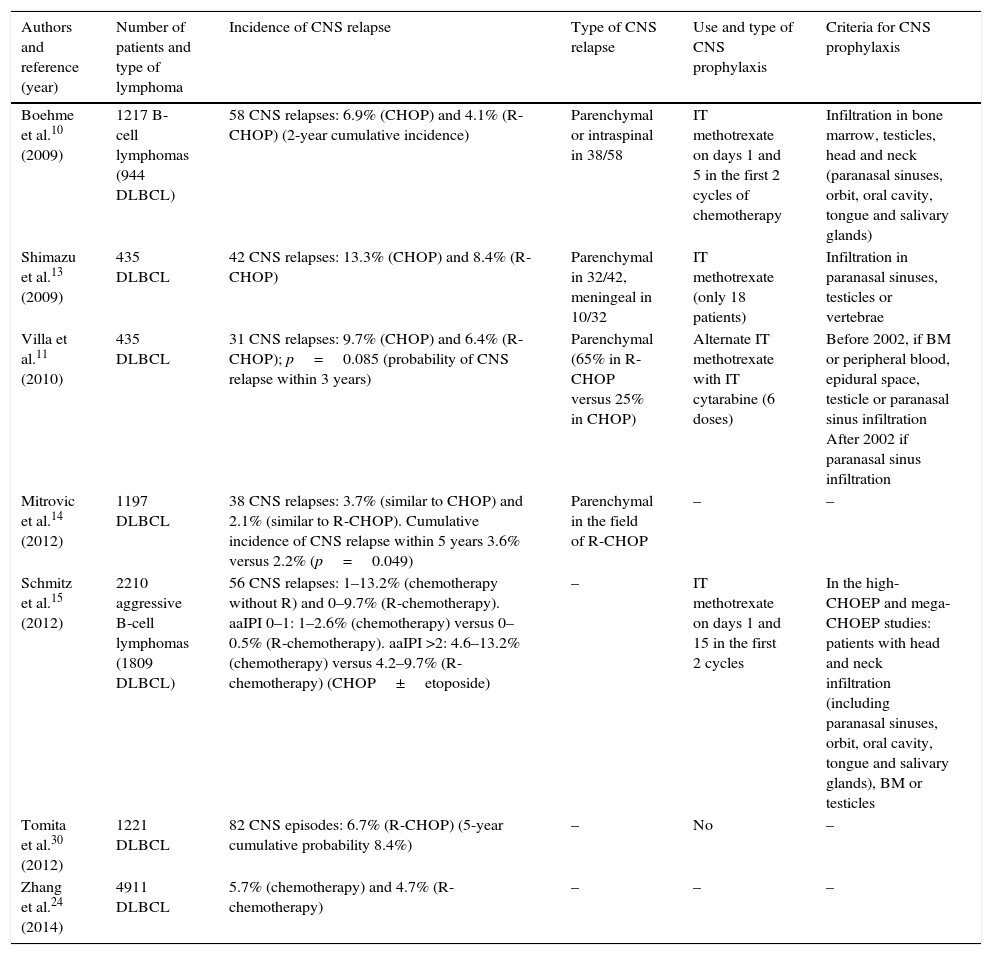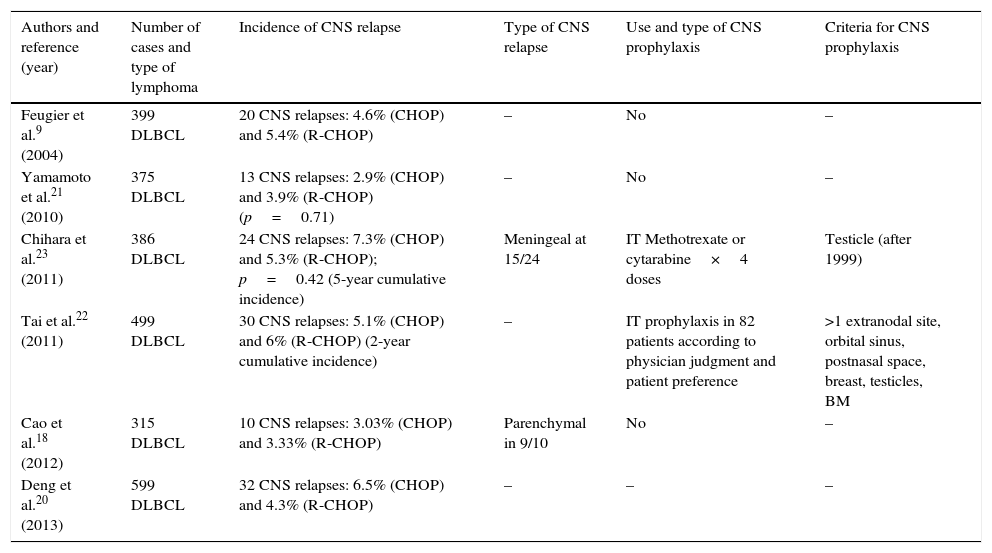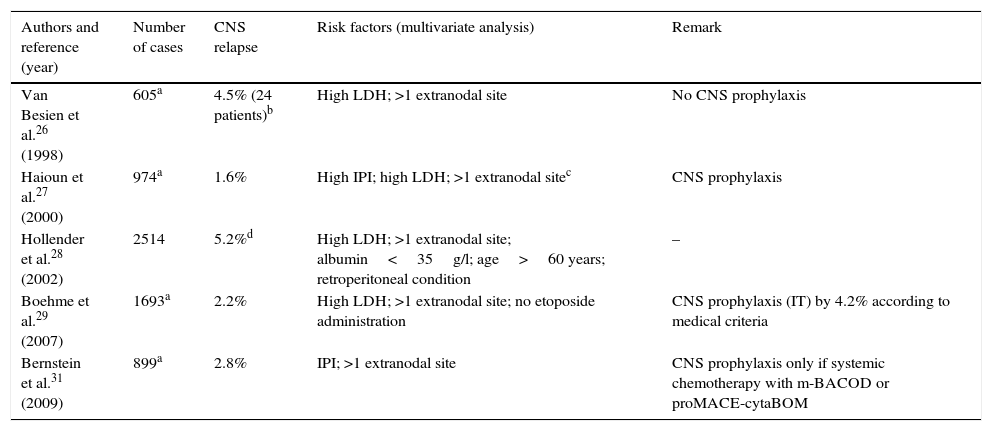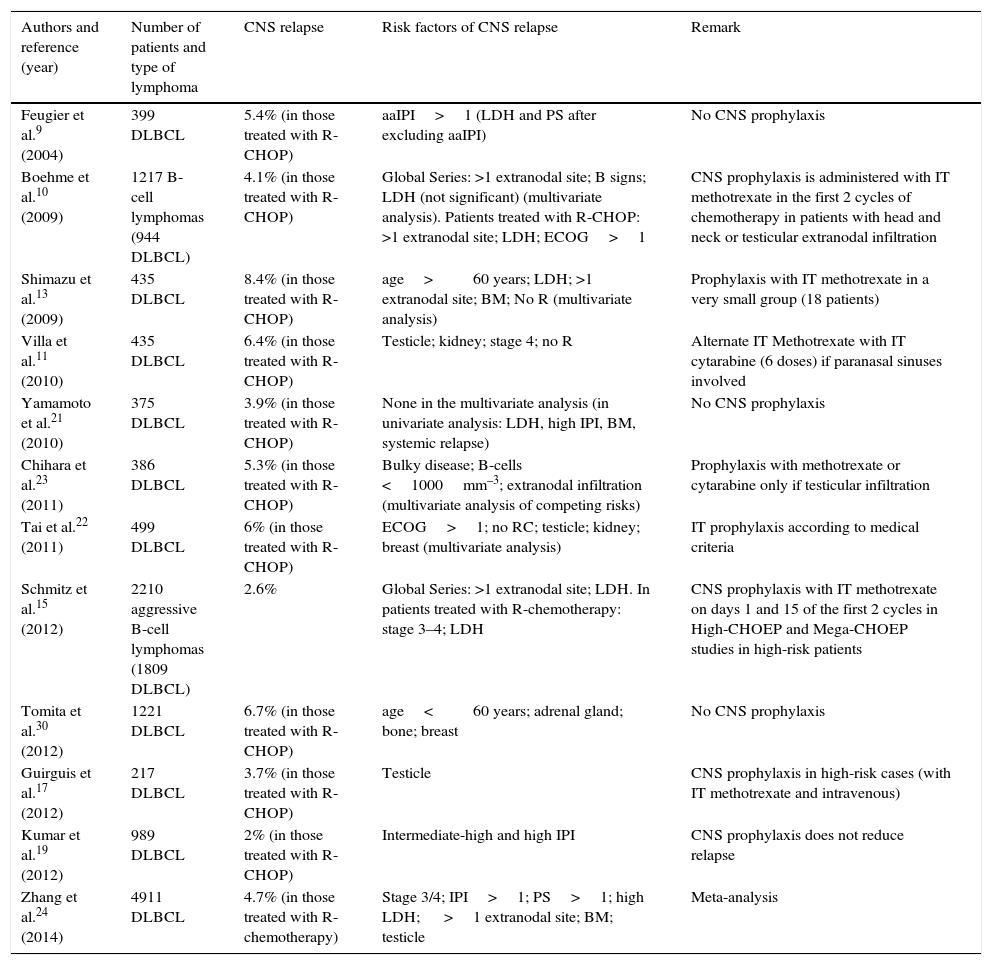Central nervous system (CNS) involvement by lymphoma is a complication associated, almost invariably, with a poor prognosis. The knowledge of the risk factors for CNS relapse is important to determine which patients could benefit from prophylaxis. Thus, patients with very aggressive lymphomas (such as lymphoblastic lymphoma or Burkitt's lymphoma) must systematically receive CNS prophylaxis due to a high CNS relapse rate (25–30%), while in patients with indolent lymphoma (such as follicular lymphoma or marginal lymphoma) prophylaxis is unnecessary. However, the question about CNS prophylaxis in patients with diffuse large B-cell lymphoma (DLBCL), the most common type of lymphoma, remains controversial. The information available is extensive, mainly based on retrospective and heterogeneous studies. There seems that immunochemotherapy based on rituximab reduces the CNS relapse rate. On the other hand, patients with increased serum lactate dehydrogenase plus more than one extranodal involvement seem to have a higher risk of CNS relapse, but a prophylaxis strategy based only on the presence of these 2 factors does not prevent all CNS relapses. Patients with involvement of testes or breast have high risk of CNS relapse and prophylaxis is mandatory. Finally, CNS prophylaxis could be considered in patients with DLBCL and renal or epidural space involvement, as well as in those cases with MYC rearrangements, although additional studies are necessary.
La infiltración del sistema nervioso central (SNC) en pacientes con linfoma es una complicación que se asocia, casi invariablemente, a un pronóstico mortal. El conocimiento de los factores de riesgo de dicha infiltración es fundamental para determinar qué pacientes podrían beneficiarse de recibir una profilaxis. Mientras que los pacientes con linfoma muy agresivo (como linfoma linfoblástico y linfoma de Burkitt) deben recibir sistemáticamente profilaxis del SNC por su elevado riesgo de recaída neuromeníngea (25-30%), los pacientes con linfoma indolente (folicular o marginal, por ejemplo) no la reciben prácticamente nunca debido a su bajo riesgo de recaída en el SNC. Sin embargo, existe controversia sobre cuándo debe administrarse en pacientes con linfoma B difuso de célula grande (LBDCG), el subtipo más frecuente de linfoma. La información disponible en la bibliografía procede en su mayoría de estudios retrospectivos y heterogéneos. La evidencia parece apoyar la hipótesis de que la inmunoquimioterapia basada en rituximab reduce las recaídas en el SNC. La coexistencia de valores de lactato deshidrogenasa sérica elevados junto con más de una localización extraganglionar son factores de riesgo asociados con una mayor frecuencia de recaída neuromeníngea, aunque una estrategia basada solo en administrar profilaxis en presencia de ambos factores no previene todas las recaídas. Los pacientes con infiltración testicular y de mama tienen un elevado riesgo de recaída en el SNC y deben recibir profilaxis. Podría considerarse, asimismo, la profilaxis de la recaída neuromeníngea en casos de LBDCG con infiltración renal o del espacio epidural, o en aquellos que presenten reordenamientos del gen MYC, aunque hacen falta más estudios que investiguen estos aspectos.










